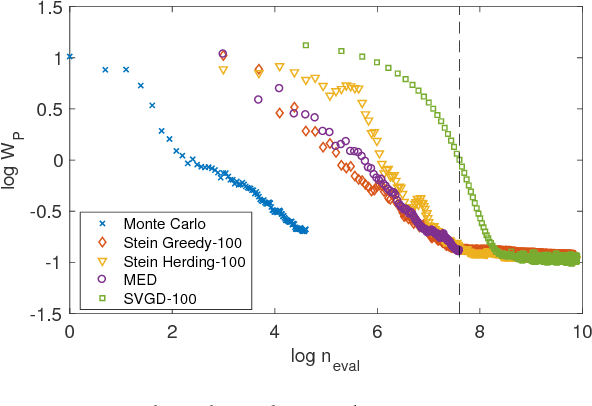Stein Points
Paper and Code
Jun 19, 2018



An important task in computational statistics and machine learning is to approximate a posterior distribution $p(x)$ with an empirical measure supported on a set of representative points $\{x_i\}_{i=1}^n$. This paper focuses on methods where the selection of points is essentially deterministic, with an emphasis on achieving accurate approximation when $n$ is small. To this end, we present `Stein Points'. The idea is to exploit either a greedy or a conditional gradient method to iteratively minimise a kernel Stein discrepancy between the empirical measure and $p(x)$. Our empirical results demonstrate that Stein Points enable accurate approximation of the posterior at modest computational cost. In addition, theoretical results are provided to establish convergence of the method.
 Add to Chrome
Add to Chrome Add to Firefox
Add to Firefox Add to Edge
Add to Edge